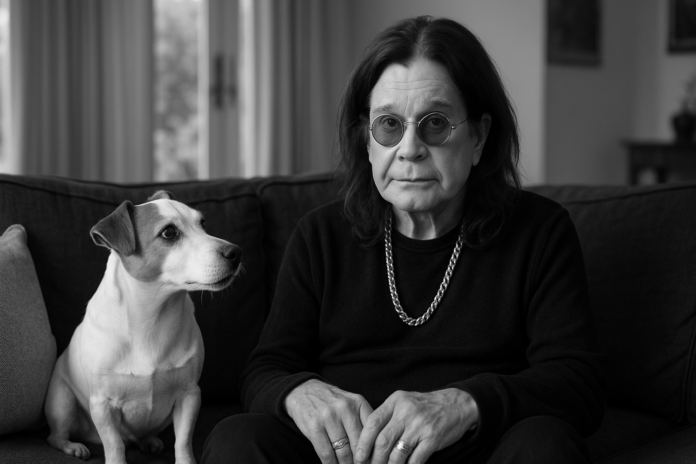by Dan Cappo
Ozzy Osbourne was a contradiction perfectly engineered for the machine he inhabited. He was a product of post-war England and a prophet of postmodern America. He sang about madness and war, and then he married Sharon and let MTV into his house. It shouldn’t have worked. It did. He was what Guy Debord warned us about and what Walter Benjamin might have secretly admired: the reproducible aura, the mechanical ghost with a lilt in its voice and a twitch in its fingers.
Before all that, before the bat and the couch and the barking dog, Ozzy was the wail emerging from the industrial fog of Birmingham. Black Sabbath wasn’t a band; it was a geological event, a sonic tremor in the ruins of post-industrial Britain. They didn’t invent heavy metal so much as stumble into it, like miners breaking into a cavern no one meant to open. Those early records (Paranoid, Master of Reality, Vol. 4) weren’t just music, they were residues. The sound of class anxiety and spiritual corrosion, of Protestant dread electrified and distorted until it broke into a kind of haunted majesty.
There’s something embarrassing about how earnestly people tried to cancel heavy metal in the ’80s. As if moral panic could contain a frequency; as if the real danger wasn’t the noise, but the world that demanded it. Ozzy gave that world a soundtrack: not a protest song, but an atmosphere. He didn’t tell you to fight the system; he sonically demonstrated what the system had already done. Rusted factories, bad acid, broken minds, and the ambient fear of late capitalism’s long night. He didn’t invent metal—no one really did—but he gave it a voice, a stare, a laugh, a howl. And then, somehow, years later, he gave it a sofa.
It’s easy to miss the significance of The Osbournes if you weren’t there. If you grew up with algorithmic influencers crying into ring lights, you might think Ozzy was just an early meme. But he wasn’t. He was the hinge, the pivot, the moment when anti-authoritarian noise culture stopped resisting and started laughing. He didn’t sell out; he spectralized. He became content without ceasing to be critique. The man who once bit the head off a bat now shuffled around his mansion muttering about the remote.
Ozzy understood performance in a way most public figures never will. Not as theater, not as branding, but as hauntology. The self as a transmission. He didn’t manipulate the spectacle; he dwelled in it. He didn’t resist the system by stepping outside it. He merged with it, broadcast himself through it, turned it inside out. And yet—improbably—he remained intact. Not unbroken, not untouched, but intact in the way that ghosts are intact: distorted, dislocated, but still there. You could hear it in his voice—still—something feral and fragile, like a fairy tale told through a damaged speaker.
Ozzy wasn’t the best singer. He wasn’t the cleverest frontman. He didn’t write the sharpest lyrics. But none of that mattered, because he was the right figure in the right decay. That’s what late-stage culture demands: not virtuosity, but signal. Not mastery, but aura. Ozzy had that, before we had a name for it. And when we did, he helped us wear it. Not cynically, but instinctively. Like a creature adapting to radiation. He was a haunted object in the museum of capitalism, and he danced.
Now he’s gone, which means we can mythologize him without guilt. But the truth is, he was always already myth. He existed more fully in vinyl grooves and broadcast signals than in any flesh. He was a brand, a memory, a dad joke, a glitch, a memento mori. He was what happens when the system tries to parody itself and accidentally produces an icon. He was funny. He was terrifying. He was wrecked. He was onstage even when he didn’t know where the stage was. And we loved him for it, not in spite of the absurdity, but because of it.
En español.
